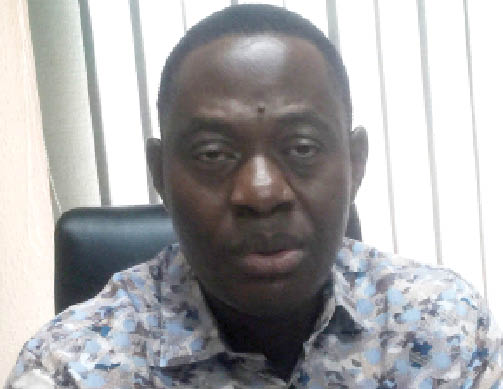Engr. Omoniyi Olaloye is the Director FCT Facilities Maintenance and Management responsible for the maintenance of major infrastructures such as street lights, public buildings, drainages, roads, bridges and other projects that are of benefit to residents of the FCT. In this interview with Daily Trust he speaks about the everyday challenges in his work descriptions and also how they are being tackled by the administration.
What is the Department of Facilities Maintenance and Management all about?
The Department of Facilities Maintenance and Management as the name implies is in charge of the maintenance and management of the engineering facilities and infrastructures within the Federal Capital city. Such infrastructures include street lights, its installations, roads, bridges, drainages, generator sets that we use to power the street lights, public buildings and other facilities within the city that are relevant to the residents.
Why do you use generator sets to power the street lights?
Because of the epileptic power supply problems in the country which is also a national problem as we know, we installed generating sets on strategic positions along the major highways particularly the presidential routes. From the villa down to the airport, we have generators that are positioned to provide alternative power supply whenever there is no light and plans are in place to install more generator sets in other areas as time goes on. In fact, there was an approval by the minister for about 22 generator sets and installations are still in progress to enable us power the street light whenever there is power failure.
We maintain these sets through contracts and we also supply and provide diesels for their usage. We also have security that protect this generator sets from robbers and vandals and every generator has its security and also operator.
The rainy season is here and whenever it rains most places in the central parts of Abuja are flooded due to blocked drainages. Why is this so?
Every year, we embark on massive drainage works in the FCT and we normally carry out this task mostly during the rainy season because the rains will help us to identify where the problems are and then we go there to make amendments and unblock such drainages. We did that the last rainy season over the city and we are also planning for this year as well but the challenge here is that because of the human activities, indiscriminate dumping of refuses in the drains are major challenges. We want to inform the residents to desist from that because it results in escalating the cost of maintenance. When people are meant to dump their refuse in the proper place, they dump them in the drainages. These people that patch tyres use the drainages to store the tyres because they don’t have where to keep them which is very bad, they hide them inside the drains and whenever there is rain this creates problem of proper flows and thereby leads to flooding. So, we want to encourage the residents to always dispose their refuse properly to avoid drainage blockages. But either they obey or not, we have a program that we do every year which is the massive cleaning of drains in the city.
Most of the manhole/sewer covers on Abuja roads have been vandalized thereby making them to remain naked which could be dangerous to both vehicles and humans, what is FCT doing about this?
The major challenge we have with the issue of the manhole covers is because the material itself is made up of cast iron and because cast iron is very useful to the vandals, they pick them up to go and sell because it can be melted and used for other things and this becomes attractive to them and that is why they started stealing this properties within the city. What we have decided to do now is to change the material that we use in providing these manholes into the ones that wouldn’t be relevant to vandals anymore and they would not be able to pick them again. It is a very expensive project to cover the whole Abuja city but we have been doing this phase by phase and every year we do them gradually. Now we are in the process as we have a contract going on to replace these covers presently, they have worked in the Maitama axis and work is ongoing around the Jabi- Utako areas.
What are some of the challenges hindering the department from delivering its mandate?
Our most challenge is sometimes with contractors, when given jobs to embark on they fail to deliver but we are doing our best here so that the procurement process will hand over contracts to reliable hands to deliver good jobs for the interest of the development of FCT.
Another challenge is in the areas of is vandalism of street lights. Vandals threaten all our installations especially at night, you see people and think they are business men but in the night they are something else, they go to our installations and sometimes they bring platforms, you will think they are AEDC workers, sometimes they will put on reflectors pretending to be whom they are not and they will come with AEDC ladders and all the kits to remove installations, they will go to our transformer and empty them, they go to the poles and pull out the cables. So, these are the challenges we have, although we are doing our best to curtail it as we have a working relationship with police and civil defense. The main thing we are trying to do now is to see how we can introduce technology to assist us. We have a pilot project we did which was very successful, we installed a secret digital camera in one of our transformer which was very prone to vandalism and we were able to get him arrested. That is the area we are trying to explore now to enable us overcome the challenges of vandalism.
How soon do we hope to see the technology deployed across board?
We are trying to convince the authorities and you know everything has to be put in budget, it will take some time but we are going to succeed.

 Join Daily Trust WhatsApp Community For Quick Access To News and Happenings Around You.
Join Daily Trust WhatsApp Community For Quick Access To News and Happenings Around You.


